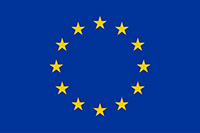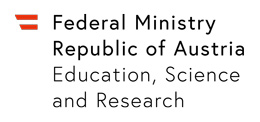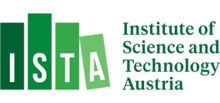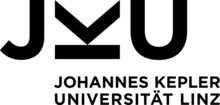About ESQ
The Erwin Schrödinger Center for Quantum Science and Discovery, ESQ, was founded in 2016 under the auspices of the Austrian Academy of Sciences, financed by the Federal Ministry of Science and Research, today Federal Ministry of Education, Science and Research. It united the Institutes of Quantum Optics and Quantum Information in Innsbruck and Vienna as well as the University of Vienna, University of Innsbruck, and the TU Wien. ESQ started with 26 research groups in 2016.
After six successful years of operation, with funding for 20 postdoc fellowships and about as many discovery fellowships, ESQ 2.0 now starts in an extended mode: The new funding scheme hosted by the Austrian Academy of Sciences shall benefit about 50 quantum groups with more than 600 active researchers, at all above mentioned institutions, now also additionally including members of IST Austria in Klosterneuburg and Johannes Kepler University in Linz.
ESQ is an Austria-wide
- Postdoc Programme to support the integration of incoming experienced researchers
- Discovery Programme that shall allow exploring highly innovative research beyond any traditional thinking.
ESQ is
- Funded by the Austrian Federal Ministry of Education, Science and Research (BMBWF)
- Coordinated by the Austrian Academy of Sciences (ÖAW),
- Operated in close partnership with 40 Austrian research groups at
- The project has received funding from the European Union’s Horizon 2020 research and innovation programme under the Marie Skłodowska-Curie grant agreement No 801110.
The Erwin Schrödinger Center for Quantum Science and Discovery, ESQ, was founded in 2016 under the auspices of the Austrian Academy of Sciences, financed by the Federal Ministry of Science and Research, today Federal Ministry of Education, Science and Research. It united the Institutes of Quantum Optics and Quantum Information in Innsbruck and Vienna as well as the University of Vienna, University of Innsbruck, and the TU Wien. ESQ started with 26 research groups in 2016.
ESQ groups are
- Working at the forefront of both experimental and theoretical research
- Focused on the foundations of quantum physics and quantum optics
- Exploring emerging technologies around quantum computing, simulation, many-body physics, communication, sensing and metrology
- Studying systems as diverse as photons, ultra-cold atoms and molecules, trapped ions, nanodiamonds, superconductors, clusters and biomolecules, levitated nanoparticles, nanomechanical devices and hybrid quantum systems.
ESQ (Vice-)Speakers are
- Speaker: Markus Arndt
- Vice Speakers: Tracy Northup (UIBK), Peter Rabl (TU Wien)
About Innsbruck and Vienna
The city of Vienna lies at the geographical heart of Europe. It regularly tops the Quality of Living Rankings and offers a rich cultural programme. The University of Vienna is one of the oldest and largest universities of Europe and with 175 degree programmes, 47 university continuing education training programmes and about 94,000 students, it is the largest and most diverse educational institution in Austria. The TU Wien is Austria's largest research and educational institution in the field of technology and natural sciences. More than 4,000 scientists are researching "technology for people" in five main research areas at eight faculties. The Institute for Quantum Optics and Quantum Information – Vienna (IQOQI Vienna) of the Austrian Academy of Sciences conducts theoretical and experimental research on the foundations of quantum physics, quantum information and space-time physics, and explores new possibilities for the construction of devices for quantum communication and quantum computing.
Innsbruck is the capital city of Tyrol in western Austria and the fifth-largest city in Austria. It offers diverse cultural events, world-famous attractions, genuine hospitality, modern lifestyle and sporting flair. Innsbruck is an internationally renowned winter sports centre. The University of Innsbruck is embedded in a world-wide network of partner universities and fosters border-crossing research and teaching co-operations. The Institute for Quantum Optics and Quantum Information (IQOQI)- Innsbruck (IQOQI Innsbruck) of the Austrian Academy of Sciences dedicates its work to theoretical and experimental basic research in the areas of quantum optics and quantum information science. Research topics range from the foundations of quantum physics to their applications, for example for metrology, sensor technology and quantum information processing.


This project has received funding from the European Union’s Horizon 2020 research and innovation programme under the Marie Skłodowska-Curie grant agreement No 801110.
ESQ has received funding from the Austrian Federal Ministry of Education, Science and Research (BMBWF).
Navigation
Contact
ESQ Office
Austrian Academy of Sciences (ÖAW)
Atena Zalbeik-Dormayer
Boltzmanngasse 5
1090 Vienna
office(at)esq-quantum.at





